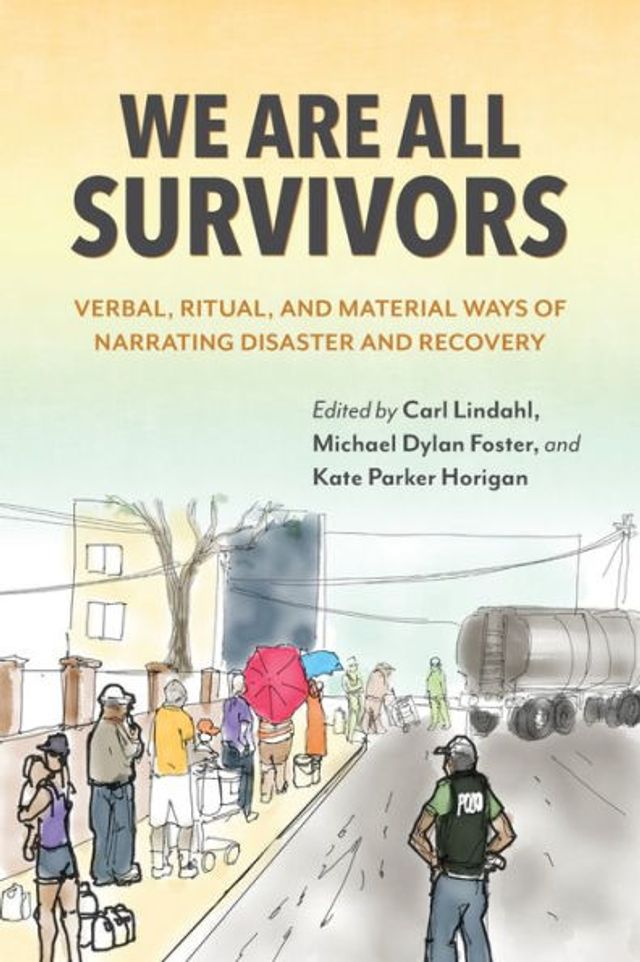Home
We Are All Survivors: Verbal, Ritual, and Material Ways of Narrating Disaster Recovery
Barnes and Noble
We Are All Survivors: Verbal, Ritual, and Material Ways of Narrating Disaster Recovery
Current price: $60.00


Barnes and Noble
We Are All Survivors: Verbal, Ritual, and Material Ways of Narrating Disaster Recovery
Current price: $60.00
Size: Hardcover
Loading Inventory...
*Product information may vary - to confirm product availability, pricing, shipping and return information please contact Barnes and Noble
What is the role of folklore in the discussion of catastrophe and trauma? How do disaster survivors use language, ritual, and the material world to articulate their experiences? What insights and tools can the field of folkloristics offer survivors for navigating and narrating disaster and its aftermath? Can folklorists contribute to broader understandings of empathy and the roles of listening in ethnographic work?
We Are All Survivors
is a collection of essays exploring the role of folklore in the wake of disaster. Contributors include scholars from the United States and Japan who have long worked with disaster-stricken communities or are disaster survivors themselves; individual chapters address Hurricane Katrina, Hurricane Maria, and two earthquakes in Japan, including the earthquake, tsunami, and nuclear disaster of 2011. Adapted from a 2017 special issue of
Fabula
(from the International Society for Folk Narrative Research), the book includes a revised introduction, an additional chapter with original illustrations, and a new conclusion considering how folklorists are documenting the COVID-19 pandemic.
bears witness to survivors' expressions of remembrance, grieving, and healing.
We Are All Survivors
is a collection of essays exploring the role of folklore in the wake of disaster. Contributors include scholars from the United States and Japan who have long worked with disaster-stricken communities or are disaster survivors themselves; individual chapters address Hurricane Katrina, Hurricane Maria, and two earthquakes in Japan, including the earthquake, tsunami, and nuclear disaster of 2011. Adapted from a 2017 special issue of
Fabula
(from the International Society for Folk Narrative Research), the book includes a revised introduction, an additional chapter with original illustrations, and a new conclusion considering how folklorists are documenting the COVID-19 pandemic.
bears witness to survivors' expressions of remembrance, grieving, and healing.


















